The indelible mark of 10 animes that shaped the course of pop culture. Anime has surely carved out its own niche in the global entertainment landscape. If you're into pop culture, it's almost certain you've felt its influence. While many anime series come and go, grabbing fleeting moments of fame, some stand the test of time. These few have not only defined their respective genres but also left an everlasting impact on pop culture. So, dive with me into this curated list that celebrates the 10 most pivotal anime series in pop culture. We've considered their groundbreaking nature within their genre, their widespread popularity, and the rave reviews they've garnered from critics. Ready to see which ones made the cut? Let's dive in!
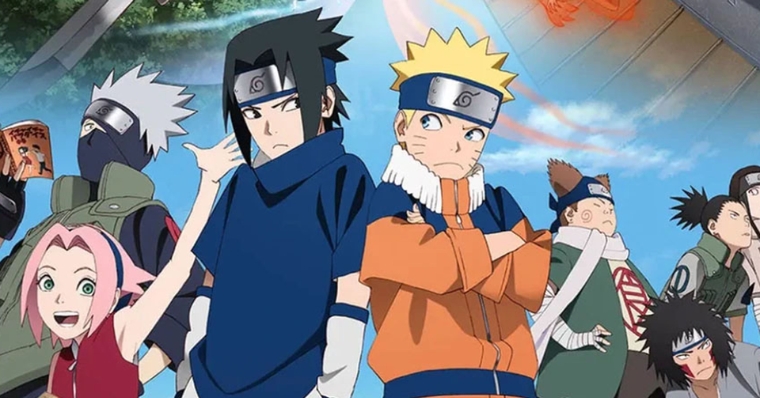
Let's talk about "Naruto", shall we? This anime unfurled an expansive ninja universe sprinkled with layers of intricate details. It started off with youthful innocence and, just like a fine wine, matured gracefully along with its characters, ultimately cementing its spot as one of the most adored anime series globally. The brilliance of Masashi Kishimoto doesn't just stop at creating an epic narrative. His work served as the gateway drug, if you will, introducing the enchanting realm of otaku to a fresh wave of enthusiasts. Our hero, Naruto, isn’t your everyday protagonist. His childhood was a maze of struggles. But everything starts to pivot when he joins Team 7, rubbing shoulders with Sakura and Sasuke under the watchful eyes of their mentor, Kakashi Hatake. As the story unravels, young Uzumaki is thrown into a whirlwind of challenges. But he's got one clear aim: to wear the hat of the Hokage, the pinnacle of ninja prowess in the village. Dive into his journey, and you're bound to be swept up in the tempest of emotions, adventures, and ninjitsu!
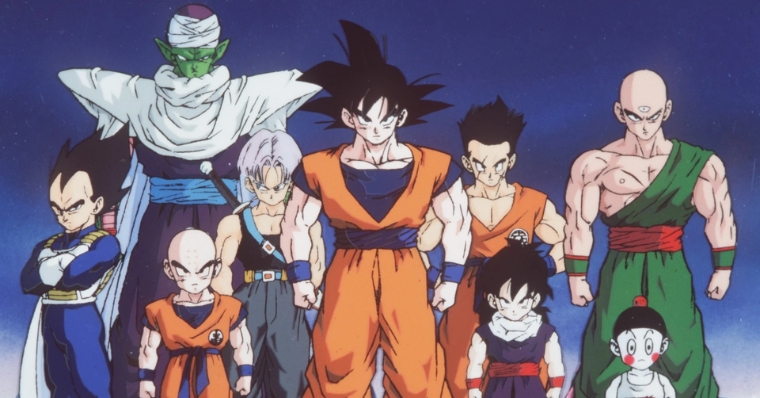
Dragon Ball
Making waves as one of the pioneering shounen, "Dragon Ball" wasn't just a Japanese sensation—it captivated hearts around the world. And trust me when I say, for a franchise cruising past its 30-year mark, its popularity seems virtually unwavering, thanks to its zealous fanbase. Akira Toriyama's brainchild has grown into this colossal empire that's transcended the confines of just manga and anime. We're talking about a sprawling universe of video games, live-action adaptations, spin-off series, and even collectible toys that would make any fan drool. But what's the juice of it all? At its core, "Dragon Ball" serves up an adrenaline-pumping storyline packed with high-octane action. We're thrown into a world where Goku, with his iconic spiky hair and orange gi, tirelessly battles nefarious foes to keep Earth safe. As the saga unfolds, Goku bands together with the Z Warriors, becoming not just a force of nature in combat but also a beloved figure in the anime world. And let's not forget the lineup of equally iconic characters – Vegeta with his royal Saiyan pride, the wise and mysterious Piccolo, the young prodigy Gohan, and the relentless Future Trunks, to name a few. Their stories, their fights, their growth—they're the ingredients that have turned "Dragon Ball" into a timeless classic.
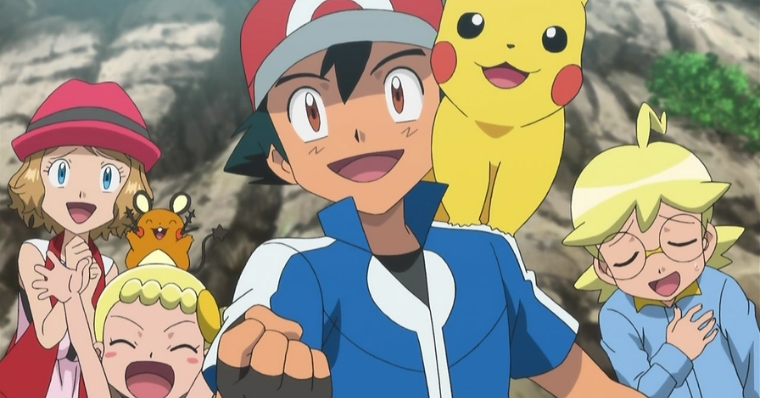
Pokémon
"Pokémon" is the show that nearly everyone has a soft spot for, regardless of age. It introduced us to a world that eerily mirrors our own, yet with a delightful twist in its ecosystem. Instead of the usual animals and plants, this world is teeming with captivating creatures dubbed Pokémons. This trendsetting anime laid down the foundation for a slew of other series where kids team up with out-of-this-world beings for epic escapades. Now, diving into the heart of the story, we shadow the zealous Ash Ketchum from the humble Pallet Town, who's fueled by a burning ambition to earn the title of Pokémon Master. In his corner is the ever-energetic and, dare I say, electrifying Pikachu. These two are the epitome of friendship goals! As they zigzag across regions, they're joined by Brock, with his rock-solid determination, and Misty, whose fiery spirit can rival any Fire-type Pokémon. Together, this dynamic quartet navigates challenges, bags new Pokémons, and shares countless laughs and memories. Whether you're in it for the thrill of battles or the camaraderie between our heroes and their pocket monsters, "Pokémon" offers a nostalgic ride down memory lane while still capturing the imagination of new generations.
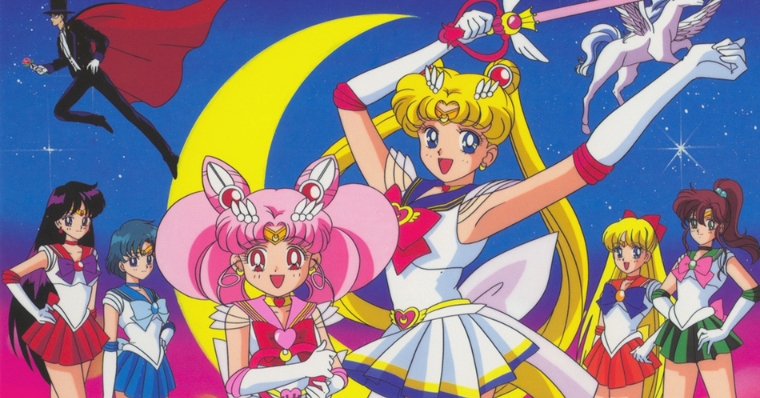
Sailor Moon
There's something incredibly enchanting about "Sailor Moon" that goes beyond its shoujo label. While it’s categorized in that genre, the anime boldly subverts expectations by spotlighting a cast of fiercely powerful and endearing female protagonists. Not just any protagonists, mind you; these are guardians with a celestial mandate to protect our planet. Their battles against looming threats are legendary, but what makes them even more compelling is their realness. At a time when media often portrayed young girls in a singular, sometimes fragile light, "Sailor Moon" flipped the script. Our heroines grapple with the universal trials and tribulations of growing up – be it love, friendships, or identity. Yet, their resilience and strength in the face of adversity shatter those early stereotypes, showing that vulnerability and power aren't mutually exclusive. Though originally aimed at a female audience, its charm knows no bounds. The series captivated audiences worldwide, making a mark so deep that its legacy still thrives. Sequels, spin-offs, and a myriad of related content continue to spring forth, affirming the franchise's timeless appeal. And then there's Usagi Tsukino – the heart and soul of the series. To say she’s a fan favorite would be an understatement. She's a beacon, an icon, a testament to the multifaceted nature of young women everywhere. Her journey from a klutzy schoolgirl to the formidable Sailor Moon has inspired and will continue to inspire many. It’s a tale that, much like the moon's gentle glow, will never fade.
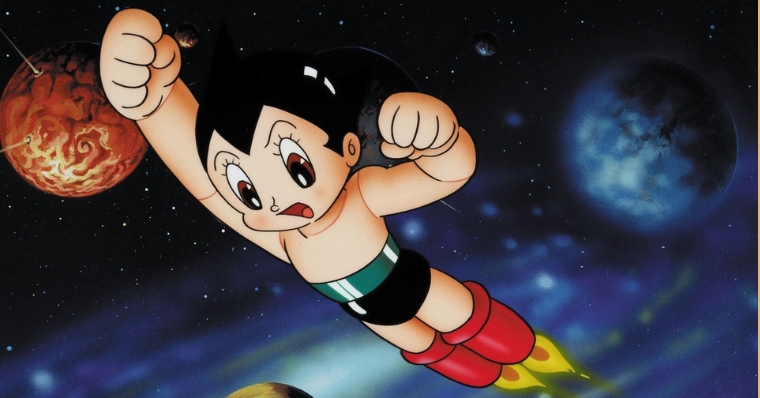
Astro Boy
When it comes to the pantheon of anime greats, "Astro Boy" proudly stands as the trailblazer. Its claim to fame? It's hailed as the very first anime. And while being the 'first' packs its own weight of prestige, it's the essence of the story that makes it resonate deeply. Birthed from the imaginative mind of Osamu Tezuka, "Astro Boy" takes us into a world where we're introduced to a young robot, radiating both might and emotion. He's not just any robotic protagonist; he's a symbolic vessel, seamlessly threading the complex fabric of humanity without being, technically, human. Through Astro's adventures, the show plunges into profound reflections on what it means to 'be,' blurring the line between man and machine. And isn't it ironic? A robot teaching us about the depths of human emotion, the rights and wrongs, and the intricate dance of morality. Astro's gentle nature and tenacious spirit are not just captivating but also timeless. It's no wonder the franchise has gracefully withstood the sands of time, becoming a bridge that connected the Eastern animation world to the West. Many anime series that followed took a page out of "Astro Boy"'s book, diving into existential themes and the evolving dynamics between humans and technology. Yet, Astro Boy's groundbreaking nature remains unmatched. While others journeyed down the path, it's worth noting - this was the first to give us a non-human champion, a beacon in the vast galaxy of storytelling, proving heroes come in all forms, circuits, and all.
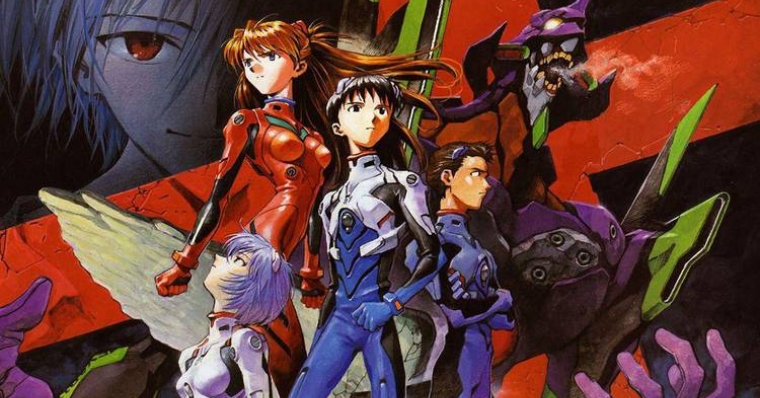
Neon Genesis Evangelion
You'd think, by the initial episodes, that "Neon Genesis Evangelion" is just another one of those action-packed anime series - giant robots, the EVAs, duking it out with mammoth monsters known as the Angels. Well, you'd be only partially correct. Dive a tad deeper, and you'll uncover layers of complexities that redefine the mecha genre. The true essence of "Neon Genesis Evangelion" doesn't revolve merely around colossal battles; it delves headfirst into the labyrinth of the human mind. What sets this anime apart from its counterparts is its audacity to intertwine themes of human psychology within its narrative, embedding each character in its own unique, tortuous reality. Each cast member, with their intricate weave of emotional and mental baggage, is a case study unto themselves. From the clutches of insecurities and the abyss of low self-worth to the peaks of narcissism and the valleys of empathy deficits, "Neon Genesis Evangelion" paints a canvas of raw human emotion. Sprinklings of depression create dark clouds over this canvas, casting shadows that many viewers find hauntingly relatable. It's this deep, resonant storytelling that has etched the show into the annals of pop culture history. To talk of game-changing anime and not give "Neon Genesis Evangelion" its deserving nod would be akin to discussing literature and omitting Shakespeare. It's that monumental, pushing boundaries and challenging our perceptions, one episode at a time.
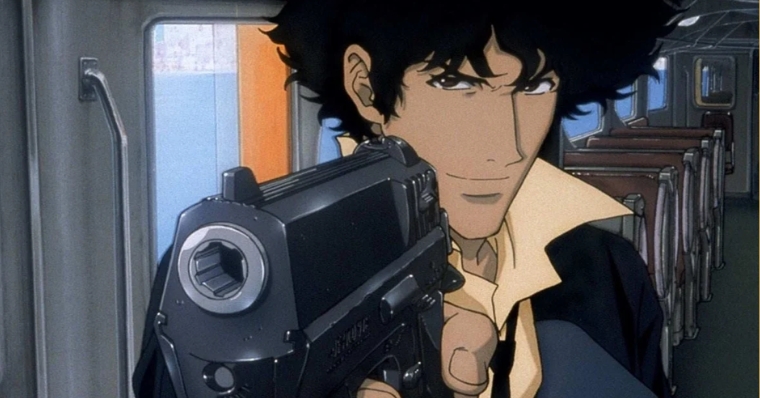
Cowboy Bebop
"Cowboy Bebop" is one of those rare gems that effortlessly meanders between the realm of seinen and the vast expanse of science fiction. But to box it in with labels would do this masterpiece a grave disservice. Yes, at its core, it presents episodic tales of the eclectic crew aboard the spaceship Bebop. Yet, each episode is a cosmos of its own - brimming with adventures, challenges, and the untold stories of the universe. As you journey through its compact yet densely packed 26 episodes, it's like peeling layers of a cosmic onion. With every episode, you’re not just diving into new galactic terrains but also getting intimate with its main cast - the suave Spike, the sturdy Jet, the mysterious Faye, the quirky Ed, and let's not forget the uber-intelligent corgi, Ein. Each character, with their rich backstory and intricate motivations, becomes an indispensable part of the universe. But wait, there's more to this cosmic dance! The series comes alive with its stellar soundtrack. It's not just background music; it's the very pulse of the series, setting the tone and rhythm for every chase, every shootout, every reflective moment. It's so enchanting that it demands a listen even outside the context of the show. At the heart of it all, our core crew are bounty hunters - chasing down interstellar outlaws and collecting their bounties. But between the thrill of the chase and the dance of danger, there are moments of raw humanity, humor, and a dash of existential pondering. The Western influence, unmistakably evident in its style and narrative, lends the series a unique flavor. A flavor that has captivated both critics and fans alike. Though a product of 1998, "Cowboy Bebop" refuses to be shackled by the chains of time. It's evergreen, forever fresh. A series that, as its name suggests, keeps bebopping through the ages, leaving an indelible mark on the hearts and minds of those who experience it.
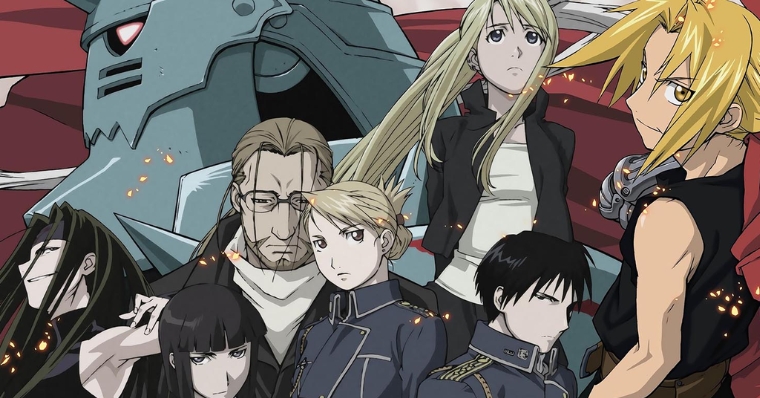
Fullmetal Alchemist: Brotherhood
"Fullmetal Alchemist: Brotherhood" is the pinnacle, sitting regally atop IMDb's highly esteemed rankings. But what sets this creation by the brilliant Hiromu Arakawa apart from the sea of other animes? The world of FMA is a tantalizing blend of the familiar and the extraordinary. At its core, it mirrors our own world but with a twist: alchemy, once relegated to the dusty shelves of history in our realm, is a thriving, tangible force here. A science, a craft, and for some, almost a religion. Now, while we in our world gave up on alchemy, dismissing many of its beliefs as mere myths, in FMA’s universe, these alchemical laws and beliefs are as real as gravity. It's a captivating reimagining that stirs the curiosity: what if our ancestors were onto something? Diving deeper into its narrative, we're taken on a rollercoaster ride with the Elric brothers, Edward and Alphonse. Their tale is nothing short of heartbreaking and inspiring. After a tragic alchemical experiment gone wrong in their childhood, Ed finds himself stripped of an arm and a leg, and Al? His entire human body was taken, leaving just his soul, which Ed, in a desperate move, anchored to a suit of armor. With the mythic Philosopher's Stone as their beacon, the brothers embark on an odyssey. Their hope? To reclaim their original bodies. But the journey is fraught with moral dilemmas, dark secrets, and enemies at every turn. Yet, it's not all gloom and doom. The brothers' bond, their encounters with diverse characters, and their unwavering determination light up the narrative. "Fullmetal Alchemist: Brotherhood" isn't just about high-octane battles and alchemical wonders, though there’s plenty of that too. It’s a profound meditation on sacrifice, love, and the choices we make. The underpinning message? Nothing comes without a cost, echoing the fundamental alchemical principle of equivalent exchange. It's a lesson that resonates, whether you're in the world of Ed and Al or our very own.
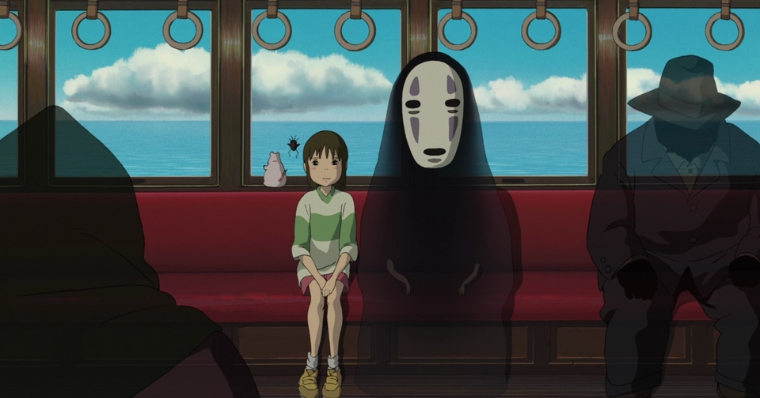
Spirited Away
There's magic, and then there's "Spirited Away." Released under the banner of the acclaimed Studio Ghibli, this film is no ordinary animation. So, when we talk about Oscars and animation in the same sentence, it's hard not to bring up this gem that snagged the Best Animated Feature award in 2003. The brain behind this mesmerizing tale? None other than the legendary Hayao Miyazaki. Even if anime isn't your cup of tea, Miyazaki's works have a unique charm, often transcending cultural boundaries and speaking directly to the human soul. "Spirited Away" isn't just a visual treat, although its breathtaking artistry is undeniable. It's a profound reflection on modern society and the challenges of growing up. The narrative unfolds around Chihiro, a young girl on the cusp of numerous changes in her life. The story begins with a seemingly mundane event - a move to a new city with her parents. But, as with any great tale, the mundane soon spirals into the extraordinary. Let's walk in Chihiro's shoes for a moment. You're in the car, anticipating a new life in a new city, when suddenly, your father, thinking he's found a clever detour, steers the family into an uncanny detour. Before you know it, a tantalizing spread of food appears before them. Yet, amidst this feast, an unsettling feeling creeps upon Chihiro. It's almost as if the air grows thick with enchantment and danger. And then, the unimaginable happens. Her world is flipped upside down as she's plunged into a whirlwind quest, challenging her wit, courage, and determination. With her parents' fate hanging in the balance, Chihiro must navigate a realm filled with spirits, magic, and timeless truths. The journey that unfolds is as much about the external world as it is about Chihiro's inner transformation. "Spirited Away" is more than just an animated feature. It's a hauntingly beautiful odyssey that delves deep into themes of identity, love, and resilience. It's a reminder that sometimes, the most unexpected detours lead us to the most unforgettable adventures.
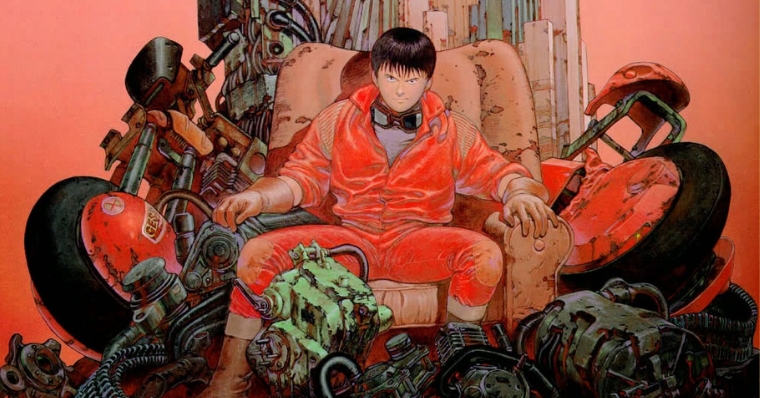
Akira
Pop culture has its icons. Some flash across our screens with a burst of color and energy, while others linger, setting roots in our collective psyche. "Akira" unquestionably belongs to the latter category. When we delve into influential animes, it's like there's this massive neon sign pointing straight to "Akira." Picture the late 80s for a moment. Animated classics were synonymous with catchy Disney tunes and fairy tale endings, captivating families worldwide. Then, out of the bustling streets of Neo-Tokyo, "Akira" rolled in, revving its engine, shattering preconceptions about what animations could embody. It wasn't just cartoons for kids. It was a visual and thematic powerhouse, depicting a dystopian future brimming with social commentary that resonated deeply with adult audiences. What makes "Akira" truly iconic isn't just its narrative brilliance but its groundbreaking animation. Despite being an 80s creation, the intricacy and depth of its animation can give contemporary animes a run for their money. The meticulous production design, the incredibly detailed cityscapes, the sheer audacity of its action sequences—every frame screams dedication and artistry. The influence of "Akira" isn't confined within the anime community. It's a testament to its cultural significance when global music icons like Kanye West and Michael Jackson draw inspiration from it. Their music videos pay homage to this anime
Marvel, encapsulating its essence in their unique styles. And here's an intriguing tidbit for those diving into "Akira" for the first time: the film barely scratches the surface of Otomo Katsuhiro's manga masterpiece. Yet, the narrative, centering around Tetsuo, Kaneda, and the enigmatic Akira, is delivered with such finesse that it feels complete and satisfying. But trust me, after watching the film, you might find yourself scouring bookstores or online platforms to get your hands on the manga and delve deeper into this mind-bending world. In the grand tapestry of anime and pop culture, "Akira" isn't just another thread. It's a bold, shimmering stripe that catches your eye and refuses to let go.











